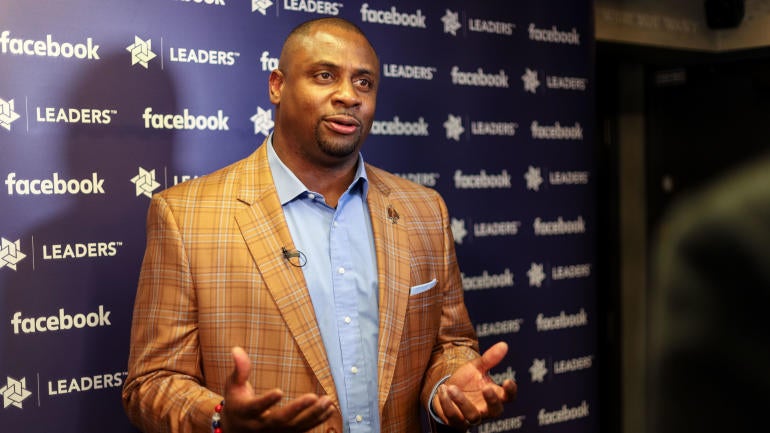
Troy Vincent, the NFL's executive vice president of football operations, and his department are overseeing an initiative to potentially further assist the identification and cultivation of minority coaching candidates through data and analytics, league sources said.
The NFL has made diversifying the coaching and front office ranks a major objective, with Vincent spearheading the effort in recent years and among those imploring owners to be more open minded about their searches. The league continues to explore more outside-the-box measures that might assist that cause, and with many front offices skewing toward general managers and decision-makers who have a strong analytics background, the football operations department is exploring the feasibility of a mathematical-based formula to help quantify candidates.
The process would help bring attention to candidates whose productivity in varied metrics would portend success as a head coach in the NFL and shine a further light on their accomplishments in a potentially quantifiable and comparative manner. With the league more and more numbers driven, any measure that could help the candidates connect with decision-makers or standout in any way is on Vincent's radar. For now, it remains in the exploratory phase.
"It's being considered," Vincent said. "There are more questions than answers currently."
Commissioner Roger Goodell has become increasingly vocal about the league's coaching ranks not being nearly diverse enough. Vincent has continued to search for ways to help close the gap between coaches of color and those who more closely resemble the owners themselves, and is willing to look at less traditional measures to aid their chances of getting these jobs. Ultimately, it is a people business, and altering the scope of how these hiring decisions are made and what most resonates with the owners is a significant part of Vincent's challenge.
"We are constantly quantifying, factoring data, analyzing statistics as we thoroughly evaluate and develop coaching and front-office profiles," Vincent said. "But these do not address the human factor. There is a human factor that poses double standards and opportunity limitations. There is also a human factor associated with player impact. Meaning, the quality of an athlete's play doesn't change, but can transform a coach or organization. Human factors are variables that algorithms do not measure, but they are fundamental to opportunity gaps.
"The focus should be the qualifications of a good coach-leadership, strategic, communicator, motivator, decision-maker, collaborator, etc. -- not additional barriers. But often the line to gain lengthens for black/minority coaches, whether it be 'they don't interview well,' or 'they've never really called plays,' or 'there is no pipeline of qualified candidates.' We can't buy into these explanations because they divert attention away from the standards or requirements necessary for the job.
"Every year there is something new, widening the opportunity gap. Some untested head coaching hires at least get the opportunity to fail while very experienced and successful coaches or front-office personnel are not even receiving an interview request. Our efforts are aimed at closing that opportunity gap."
A groundbreaking algorithm just might be one way.
















